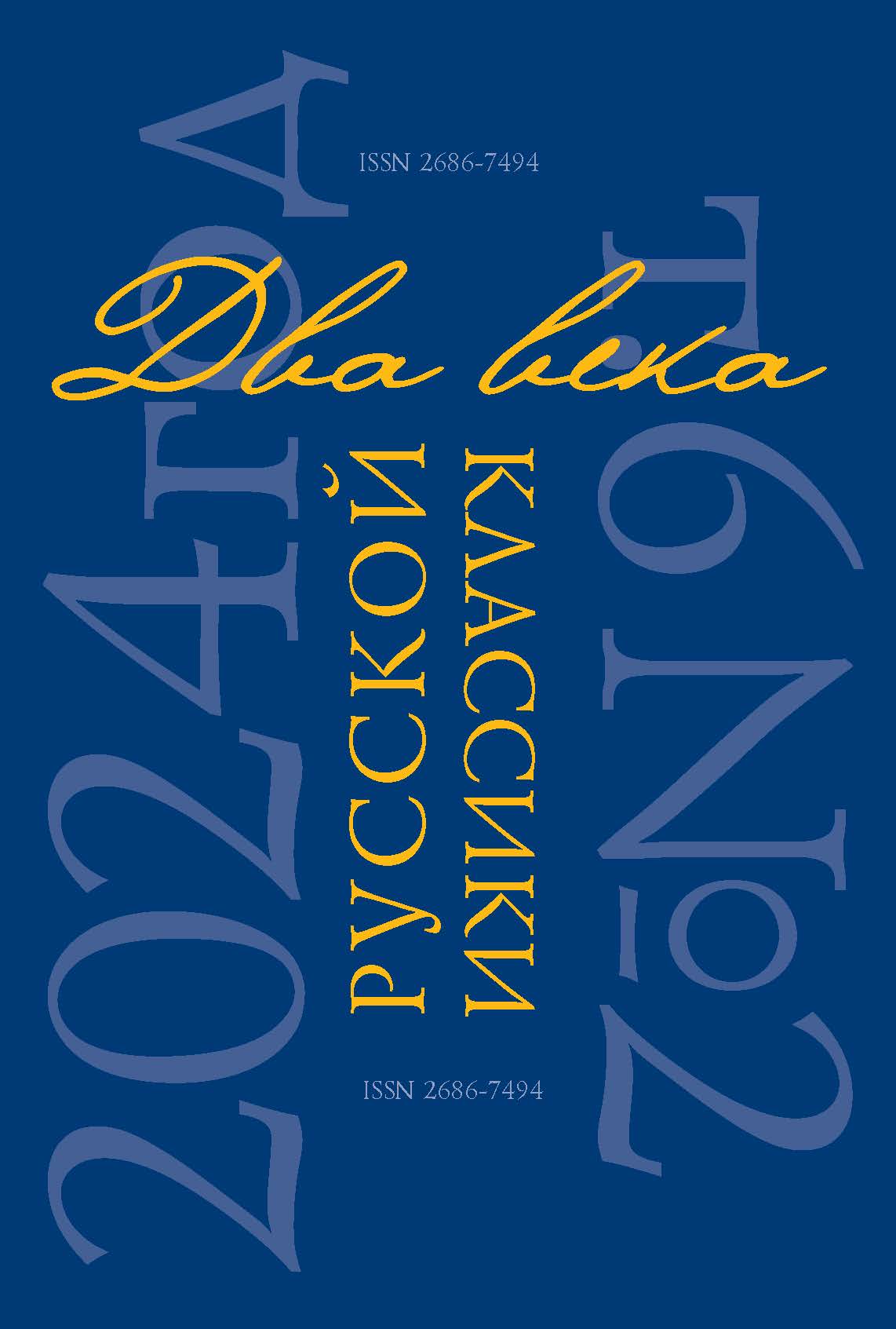Abstract:
In the 1840s F. M. Dostoevsky became famous in literary circles thanks to his story Poor Folk, but was widely criticized by the Slavophiles, namely by the Aksakov brothers for his creative approach and political ideology. In the 1860s heated disputes between Vremenya and Den’ confirmed Dostoevsky’s ideological disagreements with the Slavophiles. In the 1880s, as the author of the article shows, begins a convergence of Dostoevsky’s position, his artistic ideas and the views of the Aksakov brothers, which is especially noticeable in Dostoevsky’s speech at the Pushkin holiday. The article comprehends the main ideological differences and points of contact between pochvennichestvo and Slavophilism, traces the difficult relationship between Dostoevsky and the Aksakov brothers, which lasted more than 40 years. Numerous disagreements in the beliefs of these contemporaries concerned the issue of creative style, the purpose of literature and ideological currents. Dostoevsky believed in Slavophile thought, but was more progressive; he developed and deepened the ideals of fundamentalism in the second half of the 19th century.
References
Dmitriev, A. P. “K otsenke ‘Bednykh liudei’ i ‘Dvoinika’ F. M. Dostoevskogo v sem’e Aksakovykh (po perepiske V. S. Aksakovoi i M. G. Kartashevskoi)” [“On the Assessment of ‘Poor People’ and ‘Double’ by F. M. Dostoevsky in the Aksakov Family (According to V. S. Aksakova and M. G. Kartashevskaya)”]. Dva veka russkoi klassiki, vol. 2, no. 1, 2020, pp. 154–167. https://doi.org/10.22455/2686-7494-2020-2-1-154-167 (In Russ.)
Zakiev, Iu. I. “Slavianofily i F. M. Dostoevskii” [“Slavophiles and F. M. Dostoevsky”]. Aksakovskie chteniia: dukhovnoe i literaturnoe nasledie sem’i Aksakovykh [Aksakov Readings: the Spiritual and Literary Heritage of the Aksakov Family]. Ufa, Bashkir Institute for the Development of Education Publ., 2001, pp. 51–53. (In Russ.)
Zen’kovskii, V. V. Russkie mysliteli i Evropa: Kritika Evropeiskoi kul’tury u russkikh myslitelei [Russian Thinkers and Europe: Criticism of European Culture among Russian Thinkers]. Paris, YMCA-PRESS Publ., 1955. 283 p. (In Russ.)
Kunil’tskii, D. A. Dostoevskii i brat’ia Aksakovy: spor o russkoi literature [Dostoevsky and the Aksakov Brothers: a Dispute about Russian Literature]. Petrizavodsk, Petrozavodsk State University Publ., 2013. 152 p. (In Russ.)
Kunil’tskii, D. A. “Slavianofily i ‘Vremia’: k istorii zapreshcheniia zhurnala” [“Slavophiles and ‘Vremya’: on the History of the Magazine’s Prohibition”]. Vestnik Cherepovetskogo gosudarstvennogo universiteta, no. 6, 2015, pp. 87–90. (In Russ.)
Levitt, Markus Ch. Literutura i politika: pushkinskii prazdnik 1880 goda [Literature and Politics: Pushkin’s Holiday in 1880]. St. Petersburg, Akademicheskii proekt Publ., 1994. 263 p. (In Russ.)
Fetisenko, O. L. “ʽIstina-zhivaia sila’: brat’ia Aksakovy i Kokhanovskaia (N. S. Sokhanskaia) v 1860 g.” [“ʽTruth is a Living Force’: Brothers Aksakov and Kokhanovskaya (N. S. Sokhanskaya) in 1860”]. Khristianskoe chtenie, no. 3, 2017, p . 232–252. (In Russ.)
Frank, Joseph. Dostoevsky. The Seeds of Revolt (1821–1849). Princeton, N. J., Princeton University Press, 1976. 401 p. (In English)
Frank, Joseph. Dostoevsky. The Stir of Liberation (1860–1865). Princeton, N. J., Princeton University Press, 1986. 395 p. (In English)
Ji, Mingju. Slavophilisstic Literary Theory and Cultural criticism. Beijing, China Society Press, 2015. 251 p. (In English)
Liu, Wenfei. “The Slavophiles’ Position in Dostoevsky’s Demons.” Chinese and foreign culture and literature, 12th series. Sichuan, Sichuan University Press, 2005, pp. 288–305. (In English)
Wan, Haisong. “Discussion of the Foundamentalism as the ‘Third Way’: Focusing on Fyodor Dostoevsky.” Russian East European and Central Asian Studies, no. 3, 2018, pp. 94–107. (In English)









